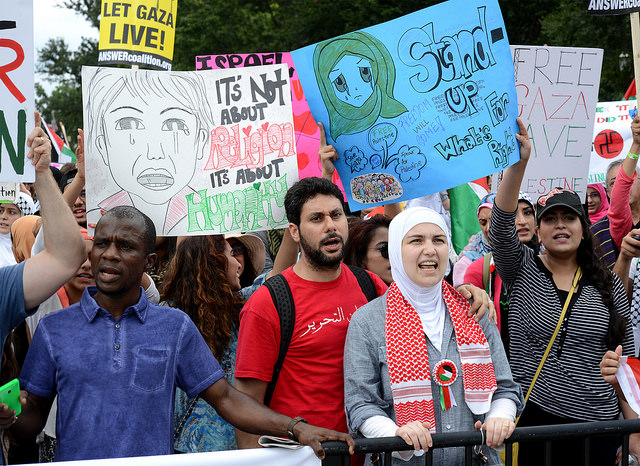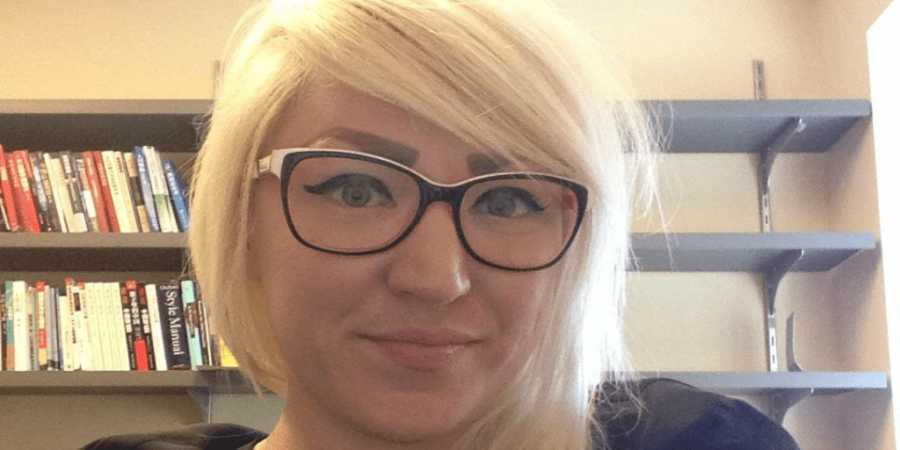From tongue-in-cheek biographies where contributors describe themselves as attendees of madrassas (which simply means “school” in Arabic) to blog entries featuring Obama in Saudi-style headwear, the alternately acerbic and irreverent sense of humor is on full display at KabobFest.
Blogging isn’t easy.
Just ask May Alhassen, one of several contributors to the mostly Arab-American blog, KabobFest. She succinctly describes the website as “an Arab-themed Daily Show in blog format.” From tongue-in-cheek biographies where contributors describe themselves as attendees of “madrassas” (which simply means “school” in Arabic) to blog entries featuring Obama in Saudi-style headwear, the alternately acerbic and irreverent sense of humor is on full display.
But the issues KabobFest dissects are serious. “[The humor] is mostly meant to illustrate the absurdity of…attempts to politicize and demonize our people, language, culture and religion,” May said.
One striking example is a delightfully absurd five-minute video production on the Kuffiyah, a piece of cloth targeted by hyperventilating conservatives as an infectious symbol of Islamist terror.
For May, America's stereotyping of American Muslim women as draped in headscarves, veils, and burqas is particularly problematic, as she has noted in blog entries. A Muslim woman who chooses not to wear hijab, May says those who judge her are most often not other Muslims, but non-Muslims.
“I meet a lot of judgment and ignorance from the general public and my piety is constantly called into question,” she said.
May was born in America but raised with Arabic as her first language. Upon entering public school she was dumped into English as a Second Language (ESL) class. “They thought because I spoke Arabic that I was a dunce,” she said. “That's how they perceive you if you speak any language other than or in addition to English.”
Her father had her IQ tested to get her out of ESL and she ended up skipping a grade, but the experience left its mark. “I became exceedingly ashamed of the Arabic language and culture,” she said.
That attitude persisted until she began attending community college and started an internship at a local congressman's district office. But as she exited the world of homogenous suburbia and entered one of “cultural, religious, linguistic and racial diversity,” September 11th struck.
“My father wanted us to operate 'under the radar,'” May said. Her father's view was shared by many Muslims at the time, as reports of beatings and vandalism poured in. “I tried to reassure my father, saying, 'Don't worry dad, nobody thinks I'm Arab anyway. Everybody thinks I'm Latina.”
Before finishing that sentence, she realized it was time to stop rejecting her Arab identity and start reclaiming it. The following days at the congressman's office, where she fielded a flood of calls from irate residents demanding that Muslims be “rounded up,” May's resolve only hardened.
When she did choose to wear a headscarf, May found herself exoticized by non-Muslim men. “I received more attention [cat-calling] with it than I ever did without it,” the blogger noted. Stressing that she can only speak about her own experience, May added, “If it is supposed to act as a means to deflect attention, it does the opposite in this society.”
May's efforts to address fear and ignorance of Arabs and Islam extend beyond the digital realm. Having recently obtained a Master's degree in anthropology from Columbia University, she runs high school workshops on challenging stereotypes and will present a paper on the kuffiyah with a fellow KabobFest blogger at the Arab-American National Museum in November.
As she is acutely aware, May has her work cut out for her. From “well-meaning” coloring books bearing titles like I Don't Want to Blow You Up!, to figures like Irshad Manji who are elevated to celebrity status for validating neoconservative-and liberal-prejudices, American Muslims find themselves misrepresented or removed from view.
“The most invisible Muslims,” May observed, “are the ones that don't fit the [stereotypical] mold.”
M. Junaid Levesque-Alam blogs about America and Islam at Crossing the Crescent (http://www.crossingthecrescent.com) and his writings on American Muslim identity have appeared in WireTap Magazine (where this piece was originally published), The Nation (online), The American Muslim, and elsewhere. He works as a communications coordinator for an anti-domestic violence agency in the NYC area and can be reached at: junaidalam1@gmail.com.
Photo Credit: Stephen D. Melkisethian




